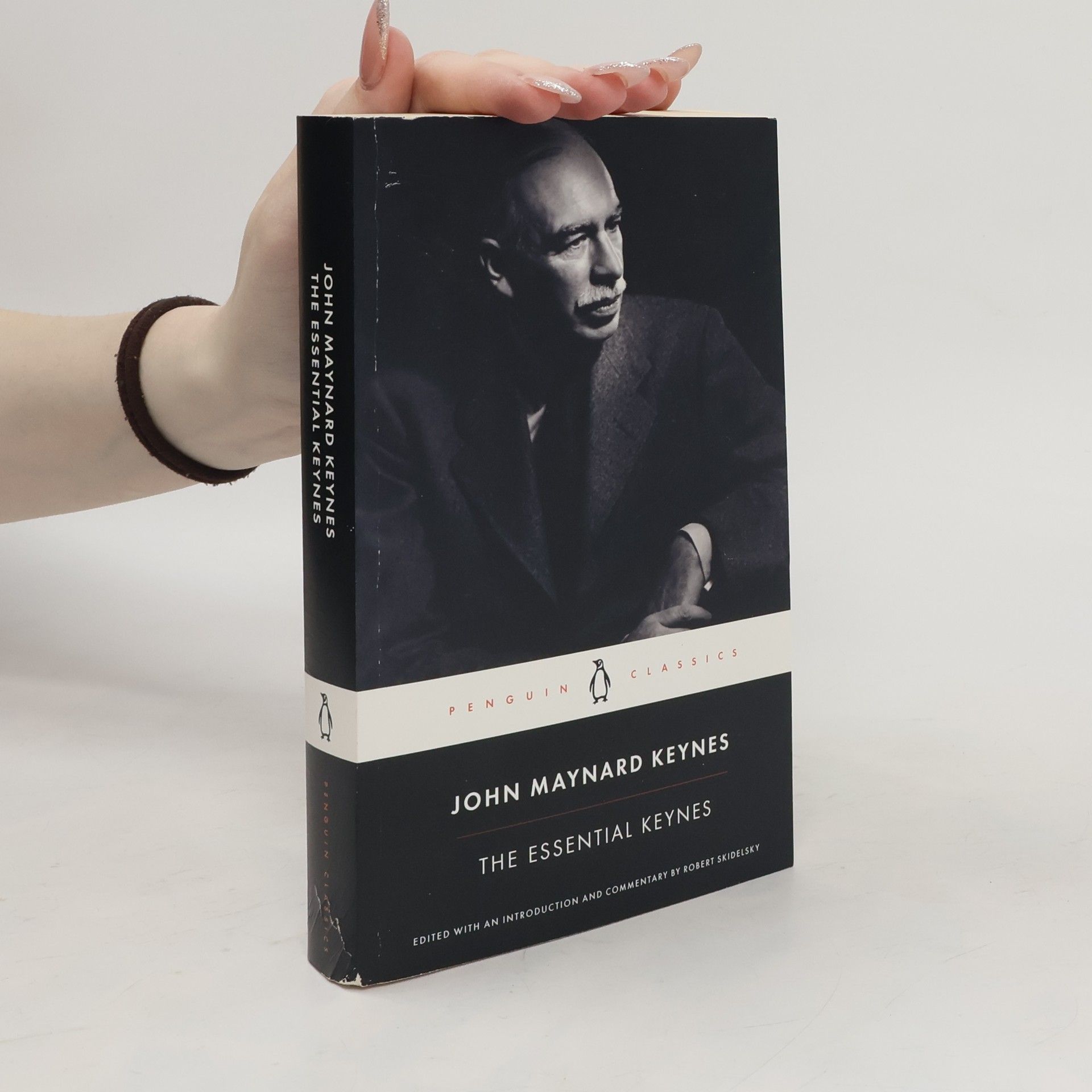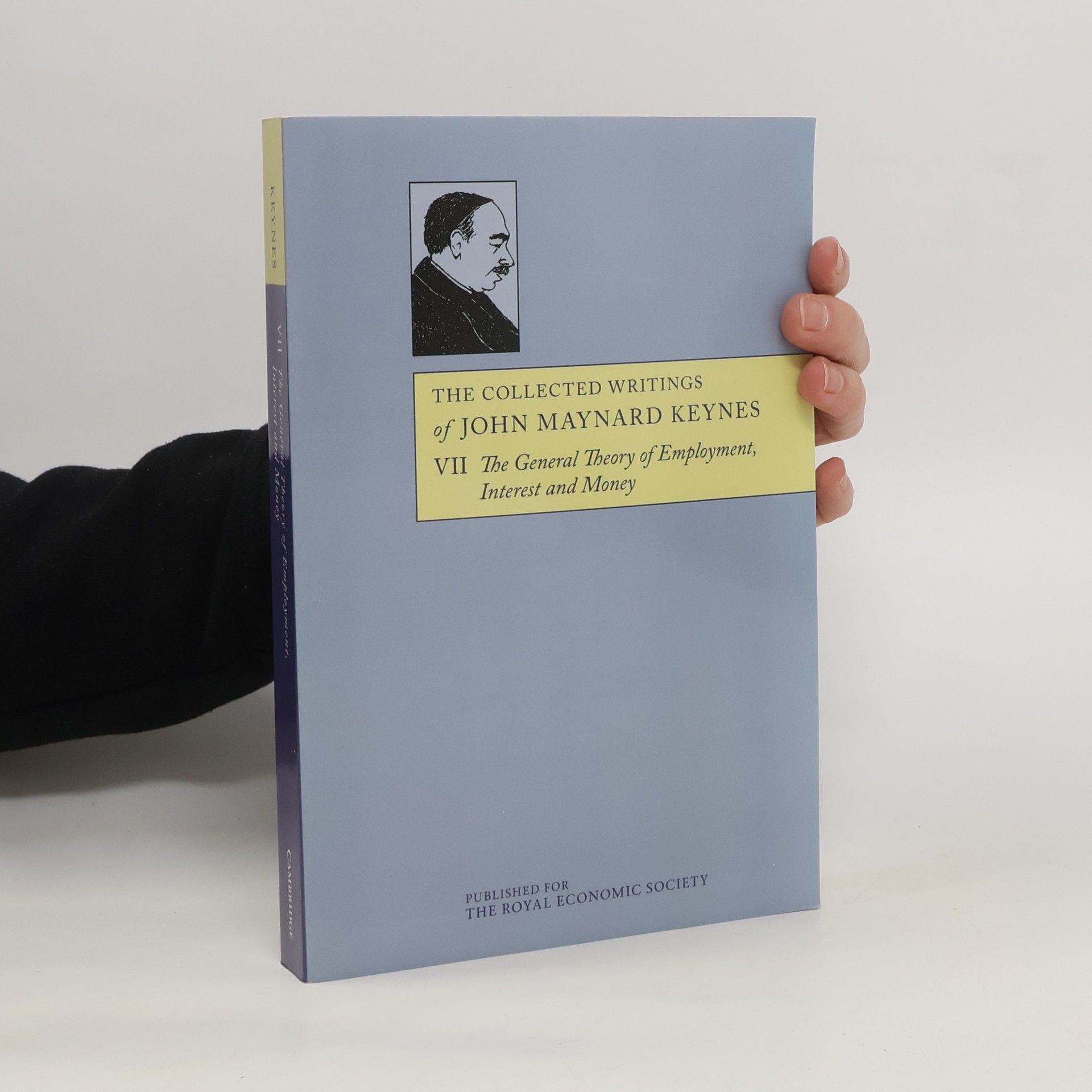The Collected Writings of John Maynard Keynes
- 456 pages
- 16 hours of reading
The most provocative book written by any economist of Keynes's generation, propounding a fundamentally new approach that revolutionised economics.
John Maynard Keynes was a British economist whose influence on the theory and practice of modern macroeconomics is particularly significant. His economic thought profoundly shaped contemporary understanding of how economies function. Keynes grappled with complex economic systems, and his works became foundational for many subsequent economic theories. His legacy lies in his deep insight into market dynamics and government policy.







The most provocative book written by any economist of Keynes's generation, propounding a fundamentally new approach that revolutionised economics.
Exploring the intricate relationship between probability and knowledge, this comprehensive work delves into various methods of measuring probabilities and the principles underlying them. It covers topics such as the frequency theory, logical inference, and the axioms of probability, while also addressing historical perspectives and significant theorems by renowned mathematicians. The book further examines the practical applications of probability in everyday conduct and statistical inference, making it a valuable resource for those interested in the foundations and implications of probabilistic reasoning.
The essays in this volume show Keynes's attempts to influence the course of events by public persuasion over the period of 1919-40. In the light of subsequent history, Essays in Persuasion is a remarkably prophetic volume covering a wide range of issues in political economy. In articles on the Versailles Treaty. John Maynard Keynes foresaw all too clearly that excessive Allied demands for reparations and indemnities would lead to the economic collapse of Germany. In Keynes's essays on inflation and deflation, the reader can find ideas that were to become the foundations of his most renowned treatise, The General Theory of Employment, Interest and Money (1936). With startling accuracy Keynes forecast the economic fluctuations that were to beset the economies of Europe and the United States and even proposed measures which, if heeded at the time, might have warded off an era of world-wide depression. His views on Soviet Russia, on the decline of laissez-faire, and the possibilities of economic growth are as relevant today as when Keynes originally set them forth.
This classical work on monetary reform, published over a century ago, has maintained its significance throughout history. Alpha Editions has undertaken the task of preserving this important text by republishing it in a modern format, ensuring clarity and readability. The book has been meticulously reformatted and retyped, moving away from scanned copies to provide a fresh presentation for both present and future generations.
Edited with an introduction by ROBERT SKIDELSKY'Many of the greatest economic evils of our time are the fruits of risk, uncertainty, and ignorance'John Maynard Keynes was the most influential economist, and one of the most influential thinkers, of the twentieth century. He overturned the orthodoxy that markets were optimally self-regulating, and instead argued for state intervention to ensure full employment and economic stability. This new selection is the first comprehensive single-volume edition of Keynes's writings on economics, philosophy, social theory and policy, including several pieces never before published. Full of irony and wit, they offer a dazzling introduction to a figure whose ideas still have urgent relevance today.John Maynard Keynes (1883-1946) is widely considered to have been the most influential economist of the 20th century. His key books include The Economic Consequences of the Peace (1919); A Treatise on Probability (1921); A Tract on Monetary Reform (1923); A Treatise on Money (1930); and his magnum opus, the General Theory of Employment, Interest, and Money (1936).Robert Skidelsky is Emeritus Professor of Political Economy at Warwick. His three-volume biography of Keynes received numerous awards, including the Lionel Gelber Prize and the Council on Foreign Relations Prize.
"John Maynard Keynes (1883-1946) was one of the most influential economists of the first half of the twentieth century. In The End of Laissez-Faire (1926), Keynes presents a brief historical review of laissez-faire economic policy."--Jacket
Distinguished British economist John Maynard Keynes (1883-1946) set off a series of movements that drastically altered the ways in which economists view the world. In his most important work, The General Theory of Employment, Interest, and Money (1936), Keynes critiqued the laissez-faire policies of his day, particularly the proposition that a normally functioning market economy would bring full employment. Keynes's forward-looking work transformed economics from merely a descriptive and analytic discipline into one that is policy oriented. For Keynes, enlightened government intervention in a nation's economic life was essential to curbing what he saw as the inherent inequalities and instabilities of unregulated capitalism.
John Maynard Keynes, wrote and published The Economic Consequences of the Peace after he was attached to the British Treasury during the war, deputy for the Chancellor of the Exchequer on the Supreme Economic Council and the official representative at the Paris Peace Conference. Leaving this positions his objections to the Versailles Treaty are made clear through this book. The success of The Economic Consequences of the Peace make Keynes a leading economist as most of the British public agreed with his assessment that Germany was being treated unfairly by the treaty.
Focusing on accessibility, this book is a reproduction of a historical work presented in large print format. The publishing house Megali aims to enhance the reading experience for individuals with impaired vision, ensuring that classic literature remains available and enjoyable to a broader audience.
Offers a reinterpretation of the Keynesian revolution that casts uncertainty, risk, and financial markets as the drivers of boom and bust cycles.